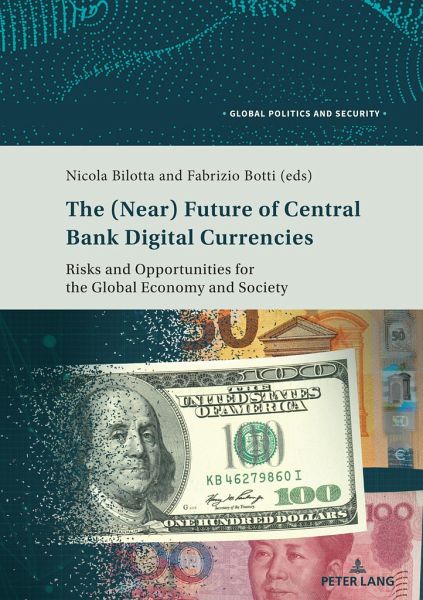
The (Near) Future of Central Bank Digital Currencies
Risks and Opportunities for the Global Economy and Society
Herausgegeben: Kamel, Lorenzo; Bilotta, Nicola; Botti, Fabrizio
Versandkostenfrei!
Versandfertig in 6-10 Tagen
44,50 €
inkl. MwSt.

PAYBACK Punkte
0 °P sammeln!
The value of global cashless payments has been radically increasing worldwide. Despite cash being the most used payment instrument in the world, technological innovation and new consumer preferences are decisively transforming the way consumers pay and manage money. The COVID-19 pandemic may also have been an accelerator of the cashless mega-trend. Private players currently dominate the digital payment ecosystem, urging central banks to seek solutions to ensure public access to legal tender if cash is phased out. In this context, the idea of a Central Bank Digital Currency (CBDC) is gaining mo...
The value of global cashless payments has been radically increasing worldwide. Despite cash being the most used payment instrument in the world, technological innovation and new consumer preferences are decisively transforming the way consumers pay and manage money. The COVID-19 pandemic may also have been an accelerator of the cashless mega-trend. Private players currently dominate the digital payment ecosystem, urging central banks to seek solutions to ensure public access to legal tender if cash is phased out. In this context, the idea of a Central Bank Digital Currency (CBDC) is gaining momentum. Nevertheless, there is a need to better understand the implications in terms of risks, benefits and potential costs of CBDCs. From privacy concerns to macroeconomic effects, these implications blur the boundaries of the payment and financial systems, challenging the core functions of our economy and society.












